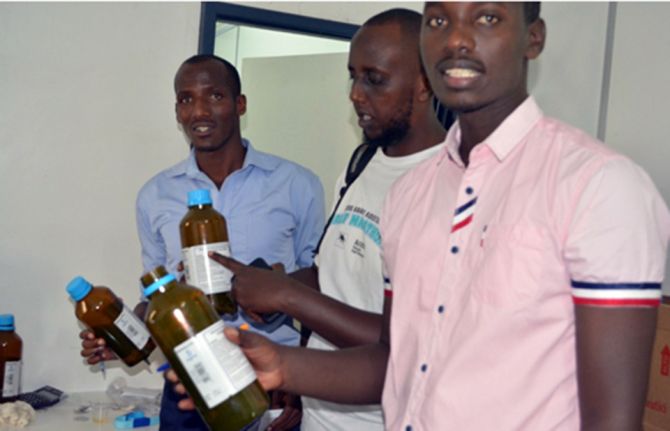

Feature Story
Pushing for harm reduction success in Burundi
25 June 2019
25 June 2019 25 June 2019This story was first published by WHO
Getting life-saving harm reduction services to people who use drugs in Burundi was the aim of a recent learning trip to Kenya supported by the World Health Organization (WHO). This saw a team of Burundian physicians and health advocates travel to Mombasa County, Kenya, to learn about good practice from one of the pioneers of harm reduction on the African continent.
Led by Burundian non-profit, Jeunesse au Clair Medical (JCM), the team will push for a comprehensive package of harm reduction interventions in Burundi. Like many other countries in Africa, injecting drug use is not often acknowledged, and a public health response therefore not implemented.
Drug use is widely criminalised and stigmatised and its complexities misunderstood. WHO defines harm reduction as an evidence-based public health response that includes the provision of needle and syringe programmes (NSP), opioid substitution therapy (OST) and access to testing and treatment of HIV, tuberculosis (TB) and viral hepatitis B and C.
Keen to gain insight into the Kenyan experience and inform the development of a programme in Burundi, the Burundian team of doctors, a counsellor and a national coordinator of a network of people who used drugs, visited the Reach Out Center Trust in Mombasa. They observed the delivery of OST programmes and learnt about advocacy with local influencers – in an excellent example of south-to-south learning.
Kenya’s response to minimising the adverse effects of drug use, although not without its own challenges, has succeeded largely through grassroots advocacy and on-boarding key influencers – making it easier for harm reduction to be accepted. This multi-level approach includes collaboration between government and civil society, involving both law enforcement and networks of people who use drugs.
At a visit to the Mombasa Inspectorate in charge of drug-related offences, the team learnt first-hand from the Chief Inspector the importance of police engagement, highlighting the negative impact drug use can have on young lives and the need for strategies that work. Today, some 100 police officers in Mombasa are trained on harm reduction with their work focusing on supporting, not punishing.
In addition to police buy-in, identifying other key influencers such as spiritual and village leaders, other government officials, and people who use drugs themselves, can ensure that harm reduction programmes are effective and sustainable.
Advocacy wasn’t the only thing on the agenda, the team from Burundi also saw in practice how the Kenyan clinics functioned, how methadone is dispensed, they spoke with peer educators and outreach officers, and were trained on data collection for programme monitoring. An important learning if they want to show evidence to get government and donors on their side.
While Kenya is several years ahead in its harm reduction journey, with local input, their learnings can be adapted to other contexts.
“The burden caused by drugs requires interventions at grassroots and education must be provided by trained people to avoid misinformation,” said Dr Egide Haragirimana, clinical officer at JCM.
JCM are putting into action their learnings and will next be involving networks of people who use drugs to better understand what their needs are, to inform future harm reduction initiatives.



